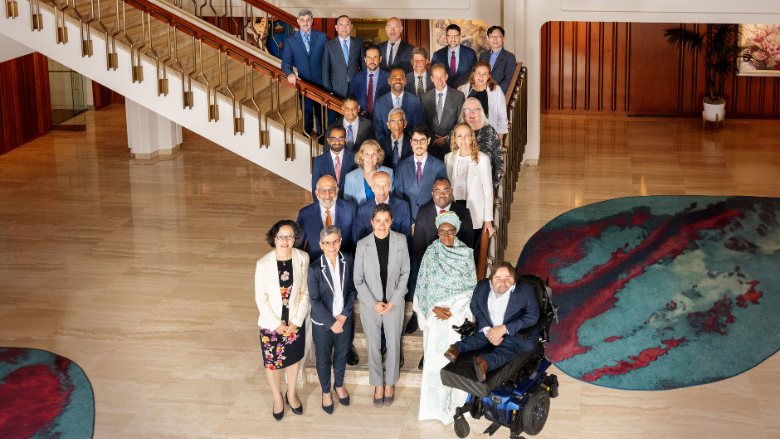Jobs are the surest path to dignity and stability—and the most lasting way to end poverty. They reduce the need for humanitarian aid, strengthen communities, and help reverse the forces of fragility. That’s why we made job creation the focus of everything we do.
In the next decade, 1.2 billion young people will enter the workforce in developing countries—but in those same countries only 400 million jobs are expected to be created. That leaves 800 million young people without a clear path to opportunity. By 2050, 80 percent of the world’s population will live in countries currently considered developing. We cannot afford to wait. The most expensive word in development is “later.”
The World Bank Group brings something unique to this challenge: public financing, deep expertise, and the private sector support needed to turn strategy into action. We are applying that full toolkit to a focused agenda: investing in foundational physical and human infrastructure—from roads and ports to education and skilling, improving policy and regulatory environments, and mobilizing private capital at scale.
We’ve identified five sectors with the greatest potential to create locally relevant jobs that don’t take jobs from developed countries: infrastructure (including energy), agribusiness, health care, tourism, and value-added manufacturing. This comprehensive approach has benefited from the insights of our Jobs High-Level Advisory Council and Private Sector Investment Lab.
To help deliver on that ambition, we’ve launched a series of practical initiatives:
Mission 300, developed with the African Development Bank and other partners, is working to connect 300 million people in Africa to electricity by 2030—because power is the first building block of jobs.
We are doubling our commitments to agribusiness, aiming to reach $9 billion a year by 2030 and another $5 billion mobilized from the private sector—it’s an ecosystem approach that places jobs and smallholder farmers at the center.
Our goal of helping countries deliver quality, affordable health care to 1.5 billion people will not only improve health outcomes, but also meet the rising demand for skilled medical professionals.
Our upcoming strategy for minerals and mining pairs legal and regulatory reform with tailored investment solutions—to turn natural resources into engines of growth.
Embedded in all this work is a commitment to what we call smart development: resilient, fiscally responsible, and rooted in local context. We build roads that can withstand floods and help farmers access drought-resistant seeds. We back national reforms to improve public spending, repurpose inefficient subsidies, curb corruption, and grow domestic tax bases. It’s not just what we do—it’s how we do it that determines whether development survives.
We’ve also made improvements across our own institution—not as ends in themselves, but as enablers of impact and this overall agenda. We’ve cut project approval times from 19 months to under 13, with some moving in just 30 days. We’ve unlocked $100 billion in new capacity through balance sheet innovations, guarantees, and hybrid capital. We’ve launched a co-financing platform with other multilateral development banks, streamlined our scorecard down to 22 outcome-focused metrics, and aligned our teams to deliver as one across public and private arms.
These changes help us match the demands of our clients, the pace of private capital, and the ambition of our shareholders. And they are already making a difference. In fiscal 2025 alone, the World Bank Group delivered $118.5 billion in financing—part of $524.5 billion over the past five years—mobilized $68.9 billion in private capital, and raised $79 billion from private investors through bonds. We also celebrated the largest IDA replenishment in history—made possible by the strong support of our shareholders.
But momentum alone does not hire a young person, put a farmer’s crop on a refrigerated truck, or power a clinic. Delivering on that promise is the work ahead—and it is what we are determined to do, together.
AJAY BANGA
President of the World Bank Group
Chairman of the Board of Executive Directors
